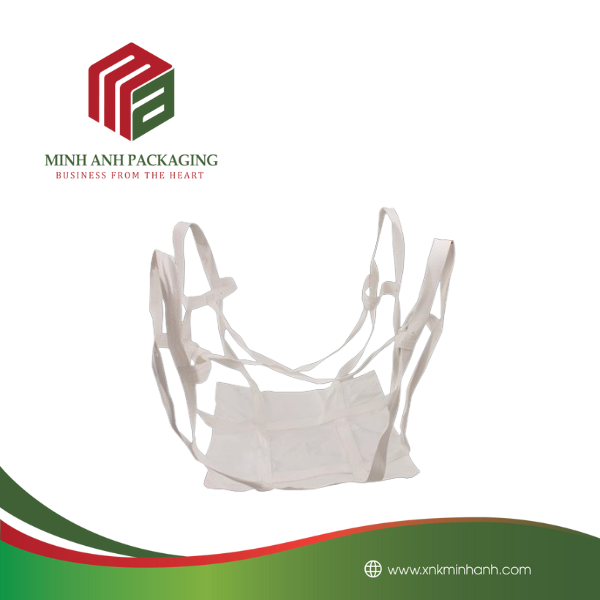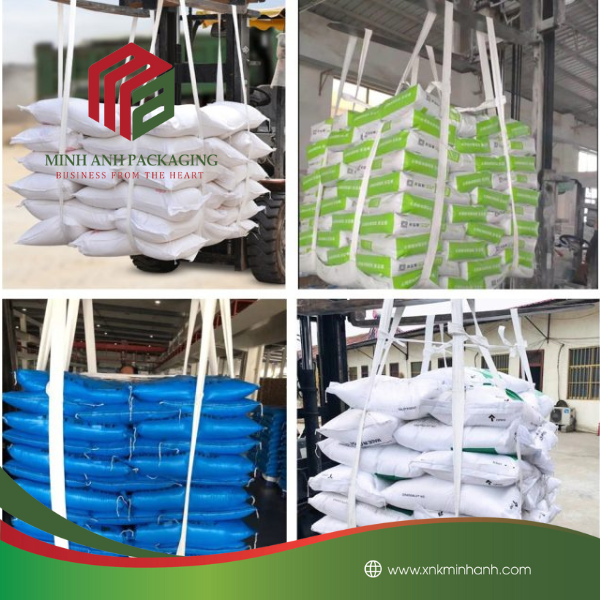Sling Bags Soft Pallet FIBC Bag Big Ton Bags
Sling bags, soft pallet FIBC bags, and big ton bags are all types of flexible intermediate bulk containers (FIBC) used in various industries for transporting and storing bulk materials. These bags are designed to provide a cost-effective and efficient solution for handling large quantities of products such as grains, chemicals, minerals, and construction materials. In this article, we will explore the features, uses, and benefits of these different types of FIBC bags.
Sling bags, soft pallet FIBC bags, and big ton bags are all types of flexible intermediate bulk containers (FIBC) used in various industries for transporting and storing bulk materials. These bags are designed to provide a cost-effective and efficient solution for handling large quantities of products such as grains, chemicals, minerals, and construction materials. In this article, we will explore the features, uses, and benefits of these different types of FIBC bags.

Sling bags, also known as single loop bags, are a type of FIBC bag that is equipped with one or more lifting loops or slings for easy handling and transportation. These bags are commonly used in industries such as agriculture, construction, and mining for storing and transporting materials such as sand, gravel, and agricultural products. Sling bags are available in various sizes and load capacities to accommodate different types of materials and handling requirements.
Soft pallet FIBC bags, also known as type C FIBC bags, are designed to provide electrostatic protection for materials that are sensitive to static electricity. These bags are constructed with a conductive fabric that helps to dissipate any static charges that may build up during filling, handling, or transportation. Soft pallet FIBC bags are commonly used in industries such as chemical manufacturing, pharmaceuticals, and electronics for transporting materials that require protection from electrostatic discharge.
Big ton bags, also known as type D FIBC bags, are specifically designed to provide protection against static electricity without the need for grounding or earthing. These bags are constructed with a specialized fabric that incorporates static dissipative properties, making them suitable for use in environments where flammable or combustible materials are present. Big ton bags are commonly used in industries such as food processing, petrochemicals, and hazardous waste management for transporting materials that require static protection.

Regardless of the specific type of FIBC bag, there are several key benefits that these bags offer. One of the primary advantages of using FIBC bags is their ability to efficiently transport and store large quantities of materials in a single container. This helps to streamline logistics and reduce the need for multiple smaller containers, ultimately leading to cost savings and improved operational efficiency.
Additionally, FIBC bags are designed to be durable and resilient, providing reliable protection for materials during handling, transportation, and storage. The robust construction of these bags helps to prevent damage or contamination of the contents, ensuring that materials arrive at their destination in optimal condition.
Furthermore, FIBC bags are designed to be versatile and adaptable to different handling and storage requirements. They can be easily customized with features such as liners, baffles, and discharge spouts to accommodate specific material characteristics and handling processes. This flexibility makes FIBC bags suitable for a wide range of applications across various industries.
| Raw material | 100% virgin PP material |
| Dimension | Base(length and width) Dimension: |
| 80cm x 110cm; 90cm x 90cm; 95cm x 95cm;100cm x 100cm; 110cm x 110cm | |
| Height Dimension: | |
| 90cm ; 110cm ;120cm; 130cm; 150cm or customized size | |
| Fabric | From 160gsm to 270gsm |
| Lifting | 4 loops/2 loops connected 4 corner. |
| SWL | 500kg- 2000kg |
| Characteristic | UV treated |
| Packing | Bales or Pallet |
In conclusion, sling bags, soft pallet FIBC bags, and big ton bags are all valuable solutions for handling bulk materials in a cost-effective and efficient manner. These FIBC bags offer a range of features and benefits that make them well-suited for transporting and storing a wide variety of materials across different industries. With their versatility, durability, and ability to provide specialized protection, FIBC bags continue to be a preferred choice for bulk material handling needs.





Hãy là người đầu tiên nhận xét “Sling Bags Soft Pallet FIBC Bag Big Ton Bags” Hủy
Sản phẩm tương tự
Bao Sling
Bao Sling









Đánh giá
Chưa có đánh giá nào.